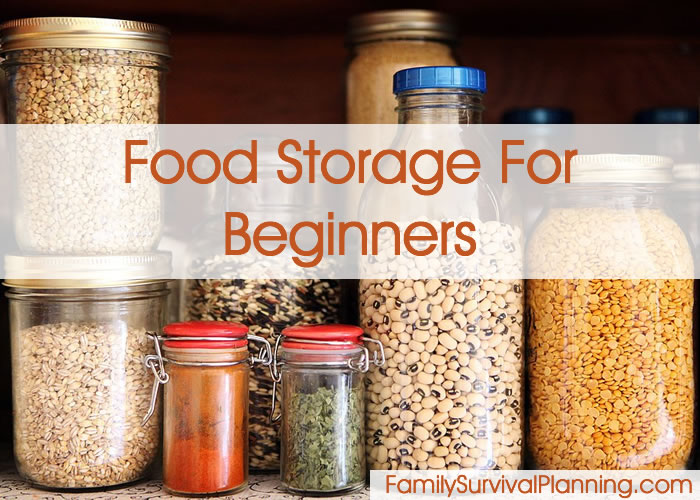- HOME
- Financial Survival
- Living Frugal
Three "Must Have" Funds to
Ensure Financial Security
Living frugal is more than just "tightening your belt" or deprivation and just barely making ends meet.
It's about:
- taking care of the possessions you have;
- having a family budget and sticking to it;
- cutting expenses as much as possible;
- planning for your future by increasing your knowledge and strategies to ensure financial security;
- having a LARGE "piggy bank" - aka savings account (or cash in a safe in your home, if you prefer).
Invest in emergency food storage now and enjoy peace of mind for the next 25 years. Don't miss out on the savings!
To be prepared, you not only need to budget wisely to purchase emergency supplies and equipment, you also need to have a readily available supply of the actual green stuff. For most of us, this is one of the most difficult areas of preparedness.
Is the current economic crisis keeping you awake at night? Does the thought of "living on a budget" leave you cold? On your current salary (providing you have one right now), are you fresh out of strategies to save money?
I've been doing a few things lately to save money like not driving as much, planning my errands to save miles, or splitting a restaurant meal with my husband. They're little things, but as they say, "Every little bit counts." Check out more money saving tips and add your personal money saving tips to our list.
Living frugal can mean just living more simply. So let's start with strategies to save money.
1. Your Piggy Bank
 How much are you saving?
How much are you saving?Having a small amount of cold, hard cash on hand can be a lifesaver, even if it's only $20 or $50. In a localized emergency, you may need a bit of cash to make phone calls, buy bottled water, or any number of small things while banks are closed, or you can't get to an ATM.
Put the money (in small change or bills) in an envelope or box and tuck it away some place where no one will be tempted to use it for other perceived "emergencies" - like a craving for a candy bar or a soda. Even better, would be to have a fireproof and waterproof safe in you home and put in several hundred (or thousand if you can) in small bills for safe keeping.
2. Your Emergency Fund
Emergencies happen all the time; they just may not be on the catastrophic scale. Maybe the water heater quits one day; or the car needs new tires; or someone gets sick bringing unplanned doctor visits — and the list could go on and on.
It's a well-known fact that there is always more month than money. For many people, the grocery budget functions as the emergency fund. Often, it's the only flexible income available. But if your monthly budget is stretched so thin that it's all you can do to put food on the table and keep a roof over your head, emergencies like this can be disastrous.
If you were able to have enough money to fill your pantry as part of your money-management system, these emergencies can probably be handled with the grocery money.
Early in our married life, we struggled financially, as many newlyweds do. I had a good job at a hospital in Dallas, but my husband was looking for work at that time. Then our emergency happened - he needed back surgery. Luckily, working in a hospital, our health insurance was the best, as well as the opportunity to know which doctors were the best. He was in the hospital only three days, but his recovery took a couple of months. Not that he couldn't do anything, but he was not supposed to sit for hours. How can you write software without sitting at a computer for hours? So he continued to look for a job while continuing his exercises and strengthening his muscles again to support his back.
My salary did not cover all of our expenses - rent, food, car payment, student loans. We used our credit cards for groceries and, seriously, lived in fear of going deeper and deeper into debt. We vowed to work hard to get out of debt and save money before another crisis came into our lives. And we did, but having an emergency fund consisting of more than the flexible grocery money would have been a real comfort.
3. The Rainy-Day Fund
 Are you increasing your rainy-day fund?
Are you increasing your rainy-day fund?Our grandparents used to set money aside every month for "a rainy day." Rainy days are those times when you face serious financial reversals - the kind where a large or larger amount of money is involved, like: a lost job, an accident or illness that prevents you from working for several weeks or months, or skyrocketing prices on gasoline, health care, or taxes (aka inflation). A salary that was just about right might now be not enough to make ends meet.
Extra savings in the bank will see you through until you can get back on your feet or make other arrangements to cover your expenses. The rainy-day fund should be equal to several month's worth of salary. Six months used to be the recommended amount, but even three months can be a staggering figure for many to try and accumulate.
Having a good food storage supply will help but it won't pay the mortgage and bills. You have to have money. Your rainy-day fund can be part of your long-term financial planning, as long as it isn't tied up so tightly that you can't access it if you need it.
Having an accessible amount of money is part of living frugal and should be as much a part of it as peanut butter and batteries are to survival planning. Combined with food storage, it could prevent an unexpected crunch from becoming a disaster in its own right.
If you are living frugal using these money-saving strategies and spending wisely, your family will be well prepared . . . and you can sleep at night.
















